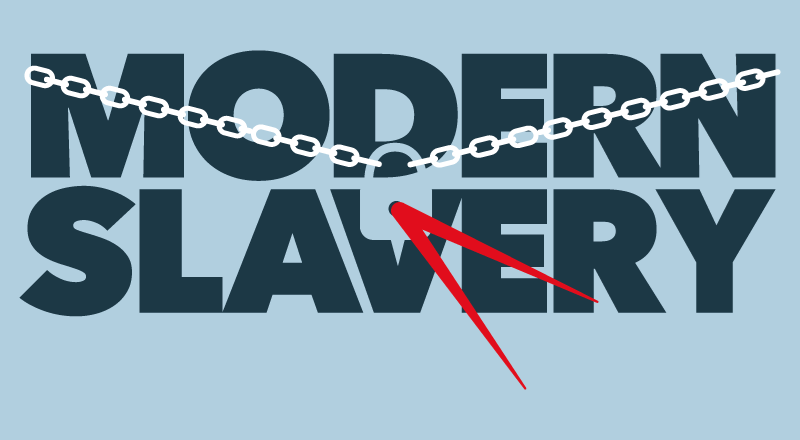Local authority audit is in a state of crisis. Among UK councils and other local government agencies, only 9% of audits for the 2020/21 reporting period were completed before the 30 November deadline. Months later, many remain incomplete. And responsibility for auditing more than 70% of local authorities resides with just two firms.
In the final report of his independent review of oversight within the local audit framework, Sir Tony Redmond recommended the creation of a national ‘system leader’ for the field. Subsequently, the government announced its intention to enshrine that brief within the Audit, Reporting and Governance Authority (ARGA): a new watchdog into which the Financial Reporting Council (FRC) will transition – pending primary legislation.
As the FRC prepares for that sweeping makeover, Insights has asked representatives of three stakeholder bodies whether ARGA will be able to resolve the various crunch points in local audit. With contributions from ICAEW, the Chartered Institute of Public Finance and Accountancy (CIPFA) and the Local Government Association (LGA), here are their thoughts on ARGA’s chances of success.
“We are concerned that ARGA won’t have all the levers it needs”
Oliver Simms, Manager, Public Sector Audit and Assurance, ICAEW
While ARGA is being positioned as the local audit system leader, in our assessment its powers look quite limited. All it will be able to do in practical terms is instruct firms on how to carry out local authority audits – or fine them in cases where audits have been poorly or improperly completed.
But a tougher regulator alone will not resolve some of the factors that are contributing to the crisis in local audit. For example, the sector’s relative unattractiveness within the audit profession compared with the pull of corporate work, and a disconnect between the priorities of finance teams and those of the current audit regulatory regime.
There is a real need for a system leader that will work with auditors and local authorities to develop long-term solutions to the sector’s problems, in ways that will encompass governance and financial reporting, as well as audit per se.
As in every sector, governance and financial reporting do not exist in isolation from audit. Our concern, therefore, is that ARGA won’t have all the levers it needs to be as effective as it should be – particularly in areas such as record keeping, fraud prevention and quality of financial reporting.
For example, ARGA should act as an early-warning system for the Department for Levelling Up, Housing and Communities (DLUHC) that some councils may be struggling. But for such a mechanism to work, it would also require DLUHC to act on that information.
In their current form, though, the proposed governance arrangements around ARGA are somewhat muddled: while DLUHC is responsible for local audit, ARGA will ultimately be accountable to the Department for Business, Energy and Industrial Strategy (BEIS).
There are encouraging developments both around and within the FRC’s transition to ARGA. The government has said that it plans to legislate for audit committees with independent members at a local level, which is a measure we have called for. The FRC’s appointment of EY Audit Partner Neil Harris as the UK’s first Director of Local Audit is also a positive move – particularly as he is set to play an integral role in the transition.
Furthermore, the FRC confirmed in a recent Position Paper that it would work with CIPFA Local Authority (Scotland) Accounts Advisory Committee – as well as HM Treasury and DLUHC – to determine whether the current financial reporting framework for local authorities can be simplified. That’s something we strongly support. The FRC also referred to ARGA as system leader for financial reporting, as well as audit, so there’s a sense the FRC understands the need for a whole-system approach.
“Plans for reaching a normal, functioning state are unclear”
Sarah Sheen, Technical Manager Local Government Financial Reporting, CIPFA
We supported the recommendations of the original Redmond Review, because we always believed that there should be a strong system leader for local audit. In turn, we think that the proposals set out in DLUHC’s technical consultation probably provide the right building blocks for addressing the various issues at stake.
However, what’s missing at this stage is a plan for getting from where we are now to where we need to be. Only just over half of the local authority audits due for the 2020/21 period have been completed – but it’s important to remember that non-completion rates were in the minor percentages as recently as 2016/17.
Of course, there are sometimes good reasons for council audits being incomplete – for example, there may be objections from electors. But fundamentally, we need to reach a stage where incomplete audits are the exception, rather than occurring routinely in tens of percentages. And what’s currently unclear is how we get to that normal, functioning state.
Lots of positive things are happening within ARGA’s development. The focus on quality in the procurement approach is very encouraging – as is the hiring of someone as experienced as Neil Harris to lead local audit. But the wisdom of that appointment must extend to his entire team. They must be similarly experienced and knowledgeable, and must understand the inherent complexities of local authority financial reporting.
Some councils are as large and complex as FTSE companies – and regularly undertake often difficult and challenging transactions with a variety of stakeholders. So, as well as ensuring that ARGA’s local audit team will have the relevant subject-matter experience, it will be vital to equip them with high-quality skills training – complete with regular updates – as the system leader continues its work.
We are pleased that the recent FRC Position Paper includes local audit, and that it was also mentioned in the government’s response to its consultation on corporate audit reform. But given that ARGA will need to deliver extensive reforms to corporate audit, we would be concerned about whether the system leader would grant an appropriate level of prioritisation to local audit, too, in parallel with that demanding brief.
It will be interesting to see the plans for how we get from one position to the other. And we are more than happy to help.
“Action is required on key issues before ARGA goes live”
Local Government Association
As the national voice of local councils, the LGA has a significant stake in how ARGA’s oversight of local audits will work in practice. In September, the LGA filed a response to DLUHC’s consultation on how the local audit framework should be strengthened. Its submission noted that, for ARGA to undertake the role of system leader effectively, more work was required to clearly define the scope of that role.
Local audit, the response pointed out, is just one part of the local government assurance framework – and there may be a danger that the system leader “is pressured into taking on other elements of the framework that would not be appropriate for its role as regulator”. As such, safeguards should be put in place to ensure that wouldn’t happen.
The response further stressed that ARGA would need to work for the benefit of councils and local residents – not just national stakeholders. As such, the LGA offered to collaborate with ARGA to ensure the voice of councils would be properly represented.
In an email response to an Insights question on whether ARGA would have what it takes to fix local audit, an LGA spokesperson said: “The external audit of local authorities faces a range of serious problems. More than 40% of 2020/21 audits are still not completed. The situation is complex and requires a concerted response from a range of stakeholders, including the government, the audit firms, the regulators and CIPFA.”
The spokesperson noted: “Setting up ARGA as the new systems leader is a positive, long-term step – provided it has a dedicated and specialist local government team. But ARGA will not be in place for one or two years.”
In the meantime, they stressed: “Action is needed now, on many issues. One urgent issue is the problem of valuation of infrastructure assets, which is further delaying the signoff of many 2020/21 accounts – and will also affect 2021/22 accounts if not resolved in the next few weeks.”
For more information visit ICAEW's Public Sector Audit Hub.
Recent articles
Future of audit
Following the UK government's feedback statement on audit and corporate governance reform, we explore the various factors shaping the profession in 2022.




